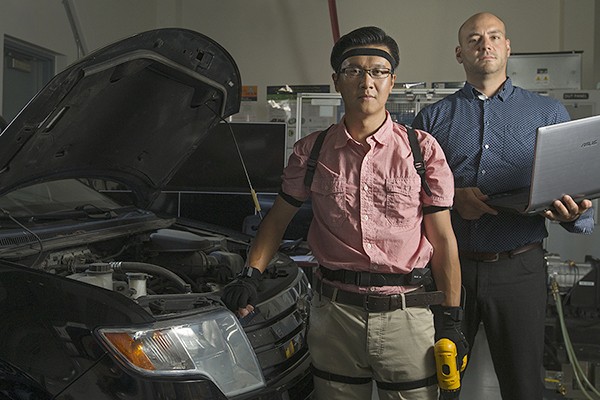 Kinesiology professor Joel Cort (right) and post-doctoral fellow Xiaoxu Ji will use motion capture technology to analyze ergonomic conditions on auto assembly lines.
Kinesiology professor Joel Cort (right) and post-doctoral fellow Xiaoxu Ji will use motion capture technology to analyze ergonomic conditions on auto assembly lines.
A partnership between Ford Motor Company and UWindsor kinesiology professor Joel Cort is employing technology that resembles a contemporary video game to make assembly lines safer for workers—and more efficient.
Dr. Cort’s research team is exploring how 3-D motion capture technology could help reduce the time it takes to create simulations that mimic a worker’s motions during the installation of parts on the assembly line.
Once initial analysis of the technology is complete, workers at Ford’s Windsor and Oakville assembly plants will be outfitted with motion capture suits. As the employees work, the suit will record their movements, creating data which can then be rapidly transferred into the game-like human simulation software.
The project will give Ford a near-complete picture of the tasks at each station on the factory floor, enabling more rapid and accurate ergonomic analysis. The company’s industrial engineers can then use the information to redesign stations when necessary and optimize for efficiencies, right down to placing the last screw.
Read the full story, Video game tech brings auto assembly into the 21st century, on the website of Mitacs, which supported the project through its Accelerate program.
